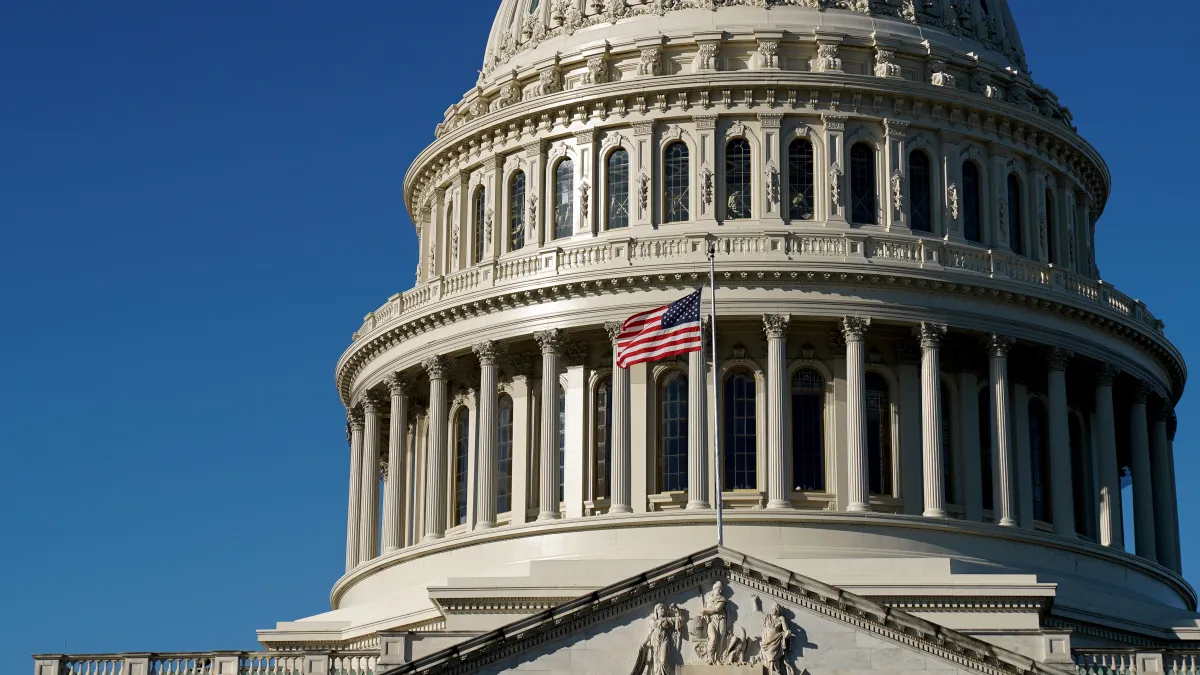
With a government shutdown deadline looming at the end of the month, congressional Republicans and Democrats are now staking out their negotiating positions, setting up what’s likely to be a tense showdown.
Congressional Republicans are reportedly preparing to vote on a “clean” short-term funding bill that would shift the deadline from September 30 to November 20, the Friday before Thanksgiving. That would ramp up pressure on Democrats to go along and avoid a shutdown, but Democratic leaders are saying they want concessions in return for help passing a funding plan.
The length of the funding extension reportedly has yet to be finalized, but the plan is to act quickly. House Appropriations Chair Tom Cole of Oklahoma told reporters that, with Congress scheduled to be out the week after next for the Jewish high holidays, the plan would be to pass a stopgap before the break. “We can do it. We’re not far,” Cole said, according to Politico. “But, you know, it’s also hard to do it the amount of time we have, because I think I probably have to be done by the end of next week.”
The Senate could potentially take up the bill next week as well.
One problem with the plan: Democrats aren’t on board with it, and their votes would be needed in the Senate. House Minority Leader Hakeem Jeffries and Senate Minority Leader Chuck Schumer told reporters today that they are prepared to work on a bipartisan spending deal, but any bill to avoid a shutdown must include measures to address what they say is a brewing healthcare crisis.
Democrats are pressing for an extension of enhanced Affordable Care Act premium subsidies that are set to expire at the end of the year. The expiration of those tax credits is projected to lead to more than 4 million people losing health insurance coverage. About 22 million are expected to see their insurance premiums soar if the tax credits aren’t renewed.
Democrats are reportedly also looking for concessions on the Medicaid cuts Republicans passed a couple of months ago as part of their One Big Beautiful Bill Act.
“We are together in defense of the health care of the American people,” Jeffries said at a joint news conference with Schumer on Thursday. “We will not support a partisan spending agreement that continues to rip away healthcare from the American people. Period. Full stop.”
Jeffries and Schumer took different approaches to a similar funding fight earlier this year, but the two Democratic leaders say they are on the same page this time.
“House and Senate, Hakeem and I are in total agreement, what the Republicans are proposing is not good enough for the American people and not good enough to get our votes,” Schumer told reporters Thursday. “On this issue, we’re totally united. The Republicans have to come to meet with us in a true bipartisan negotiation to satisfy the American people’s needs on healthcare or they won’t get our votes, plain and simple.”
The outlook for that kind of deal may be grim, given that Senate Majority Leader John Thune this week indicated he will insist on a "clean" stopgap funding bill this month, leaving any discussion of healthcare subsidies for later. GOP hardliners oppose extending the enhanced subsidies.
While Republican and Democratic leaders settle on their strategies for a spending fight, they also continue to work on annual spending measures in hopes of being able to include a finalized package of three of 12 full-year bills as part of any deal. The package covers the departments of Agriculture and Veterans Affairs as well as military construction, congressional operations and the Food and Drug Administration.
“In a sign of progress,” Politico notes, “House and Senate negotiators have privately reached a bipartisan deal on overall totals for each of those three funding bills, according to two people familiar with the compromise, granted anonymity to discuss the private accord.”